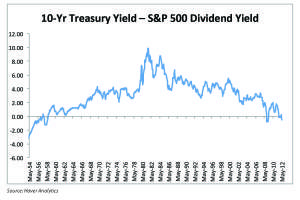I have been looking for a metaphor that usefully and accurately describes the European crisis, and I think I finally have it. The moment of enlightenment came last night when I was talking with an advisor at Commonwealth’s Retirement Symposium (which looks to be fantastic for the second year running) about our kids. This advisor has teenagers, and as we were talking, I found my metaphor. I hasten to add that this is based on my experience—not that of the advisor and her kids.
When I was in college, through some colossal mistake, I was issued a credit card by Citibank, who must have held the theory that my parents would make good on my debt if (when) I overspent. To make a long story short, I learned an expensive lesson: my parents declined the opportunity to bail me out, default was not an option, and it required personal austerity on my part to pay off the credit card.





